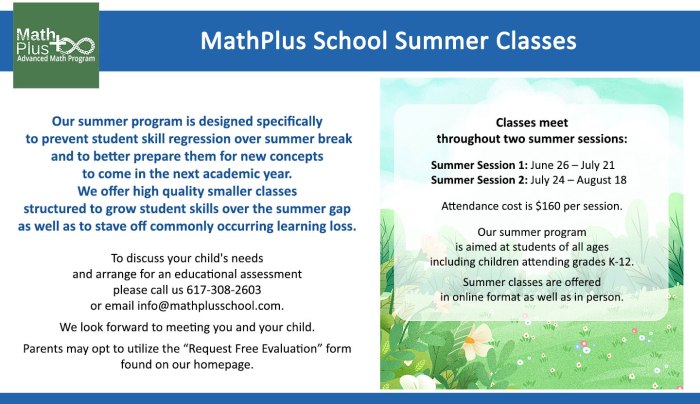
Navigating the financial landscape of higher education can be challenging, especially when considering the added expense of summer courses. Many students utilize student loans to supplement their educational funding, and summer classes present a unique opportunity to accelerate graduation, potentially saving money on overall loan costs. However, careful planning and budgeting are crucial to ensure responsible debt management while taking advantage of the benefits summer courses offer. This guide explores the intricacies of student loans for summer classes, encompassing budgeting strategies, loan eligibility, career prospects, and maintaining well-being during this intensive period.
Understanding the interplay between summer classes, loan repayment, and career advancement is key to making informed decisions. This involves exploring various course types, their associated costs, and the impact on long-term financial goals. We will delve into practical strategies for financial planning, stress management, and accessing additional financial aid resources specifically designed for summer coursework.
Summer Classes and Student Loan Repayment

Taking summer courses can significantly impact your student loan repayment journey, often in positive ways. By strategically utilizing summer sessions, students can potentially graduate earlier, reducing the overall time they’re accruing interest on their loans and ultimately saving money. This section explores the relationship between summer classes and student loan repayment, providing strategies for effective financial management during this period.
Summer courses offer a unique opportunity to accelerate your path to graduation. Completing additional coursework during the summer months allows you to finish your degree program faster, which directly translates to less time accumulating interest on your student loans. For example, a student who typically takes 15 credit hours per semester might complete their degree in four years. By adding a summer session with 6 credit hours each year, they could potentially graduate in 3.5 years, saving a considerable amount on interest payments over the life of their loans. This is especially beneficial for students with significant loan burdens.
Accelerated Graduation and Reduced Loan Costs
The accelerated graduation pathway is a clear advantage. Consider a student with $30,000 in student loans at a 6% interest rate. If they graduate in four years, they’ll accrue more interest compared to a student who graduates in 3.5 years. The difference, even with similar monthly payments, can amount to several thousand dollars in saved interest over the repayment period. The earlier graduation significantly reduces the total amount repaid. Furthermore, entering the workforce sooner allows for earlier loan repayment commencement, further minimizing interest accumulation.
Strategies for Budgeting and Managing Finances
Effective financial management during summer classes requires careful planning and budgeting. It’s crucial to create a realistic budget that incorporates all expenses, including tuition fees, living costs, loan payments, and personal spending. Tracking expenses diligently and sticking to a budget are essential for avoiding debt accumulation. Exploring potential part-time employment options during the summer can provide additional income to alleviate financial pressure. Prioritizing essential expenses and minimizing non-essential spending can also help maintain financial stability.
Sample Summer Student Budget
Below is a sample budget for a student taking summer classes, demonstrating how to incorporate various expenses:
| Category | Amount ($) |
|---|---|
| Tuition | 2000 |
| Books & Supplies | 300 |
| Housing | 1000 |
| Food | 500 |
| Transportation | 150 |
| Student Loan Payment | 250 |
| Personal Expenses | 200 |
| Total | 4400 |
This budget assumes a relatively modest lifestyle. Individual needs and expenses will vary, requiring personalized adjustments. It’s important to regularly review and adjust the budget based on actual spending and unexpected costs. Remember, this is a sample, and your actual budget will need to reflect your specific circumstances. Seeking advice from a financial advisor can also prove beneficial in creating a personalized and effective financial plan.
Types of Summer Courses and Loan Eligibility

Summer courses offer flexibility for students to accelerate their studies, catch up on credits, or explore new subjects. However, understanding the different types of courses and their associated costs, as well as loan eligibility, is crucial for effective financial planning. This section will clarify these aspects, providing a framework for informed decision-making regarding summer coursework and student loan utilization.
Types of Summer Courses and Associated Costs
Summer courses are offered in various formats, each with its own cost implications. Accelerated courses, designed to cover a semester’s worth of material in a shorter timeframe, often command higher tuition rates per credit hour due to the condensed learning schedule and increased instructor workload. Online courses, while potentially offering convenience and flexibility, may still incur fees for technology access or software. In-person summer courses, similar to regular semester courses, have tuition rates that vary depending on the institution and the specific course. The cost of summer courses also includes potential additional fees such as lab fees, materials fees, and technology fees. These vary greatly depending on the subject matter and the institution. For example, a summer chemistry course might have significant lab fees, while an online history course might have minimal additional costs beyond tuition.
Student Loan Eligibility for Summer Courses
Eligibility for student loans to cover summer coursework generally mirrors the requirements for regular academic year loans. Federal student loans, such as Stafford Loans and PLUS Loans, are typically available for summer courses provided the student is enrolled at least half-time (usually defined as six credit hours). However, the maximum loan amount may be adjusted based on the number of credit hours taken during the summer session. Private student loans also may cover summer courses, but eligibility criteria and interest rates can vary significantly between lenders. It is important to check with both the institution’s financial aid office and the loan provider to confirm eligibility and loan limits for summer coursework.
Student Loan vs. Alternative Financing Options
Using student loans to finance summer courses offers the advantage of potentially lower interest rates compared to other options, especially federal loans. However, borrowing money increases future financial obligations. Alternative financing options include savings, part-time employment, and scholarships specifically designated for summer study. The best approach depends on individual financial circumstances. For instance, a student with significant savings might prefer to use their own funds to avoid accumulating debt, while a student with limited savings and a strong need to accelerate their degree progression might opt for a student loan.
Applying for Student Loans for Summer Courses
The application process for student loans for summer courses usually involves completing the Free Application for Federal Student Aid (FAFSA) if applying for federal loans. For private loans, students must apply directly with the lender, providing documentation such as their enrollment verification, academic transcript, and credit history (if applicable). The timeline for loan processing may vary depending on the type of loan and the lender. It is recommended to apply well in advance of the start of summer classes to ensure sufficient time for processing and disbursement of funds. Many institutions have specific deadlines for summer financial aid applications, so it is crucial to check those deadlines early.
Impact of Summer Classes on Career Prospects
Summer courses offer a valuable opportunity to enhance academic credentials and bolster career prospects. By strategically selecting courses, students can acquire in-demand skills, broaden their knowledge base, and make themselves more competitive in the job market. This can lead to improved job opportunities, higher starting salaries, and faster career progression.
Completing summer courses demonstrates initiative, a strong work ethic, and a commitment to continuous learning – qualities highly valued by employers. The additional coursework can also help students gain a competitive edge when applying for internships or graduate programs. Furthermore, specialized summer courses can provide practical experience and knowledge that directly translates into workplace skills.
Examples of Highly Valued Summer Courses
Summer courses in high-demand fields such as data science, cybersecurity, and artificial intelligence are often highly valued by employers. These fields are experiencing rapid growth, creating a significant demand for skilled professionals. Other valuable courses include those focused on project management, digital marketing, and specific software applications relevant to particular industries. For example, a summer course in Python programming could be beneficial for aspiring data scientists or software engineers, while a course in Adobe Creative Suite could be advantageous for aspiring graphic designers or marketers. The specific value of a course depends heavily on the student’s career aspirations and the current job market trends.
Career Impact of Different Summer Courses
The following table illustrates the potential career impact of different summer courses across various industries. Note that salary increases are projections and can vary based on factors such as experience, location, and company size. These figures are based on industry reports and salary surveys from reputable sources.
| Course Name | Industry | Skill Acquired | Projected Salary Increase (USD) |
|---|---|---|---|
| Data Analysis with Python | Data Science, Technology | Data manipulation, statistical analysis, data visualization | $5,000 – $10,000 |
| Cybersecurity Fundamentals | Information Technology, Cybersecurity | Network security, risk management, incident response | $7,000 – $15,000 |
| Digital Marketing Strategies | Marketing, Advertising | , SEM, social media marketing, content marketing | $4,000 – $8,000 |
| Project Management Principles | Various Industries | Project planning, execution, monitoring, and closure | $3,000 – $6,000 |
Potential Career Paths Benefiting from Summer Classes
Taking summer classes can significantly benefit various career paths. Students aiming for careers in technology, healthcare, finance, and business can all leverage summer courses to enhance their skills and qualifications. For instance, a student interested in a career in finance could take a summer course in financial modeling, while a student aiming for a career in healthcare could benefit from a course in medical coding or healthcare administration. The key is to select courses that align with specific career goals and enhance the student’s overall skill set. This proactive approach to learning demonstrates a commitment to professional development and can significantly improve job prospects.
Mental and Physical Well-being During Summer Classes
Summer classes offer a great opportunity to accelerate academic progress, but the condensed schedule can significantly impact a student’s mental and physical health. Maintaining a healthy work-life balance is crucial for success and overall well-being during this intensive period. Failing to prioritize self-care can lead to burnout, decreased academic performance, and negative impacts on physical and mental health.
Strategies for Stress Management and Burnout Prevention
Effective stress management is vital for navigating the demands of summer classes. Implementing practical strategies can significantly improve a student’s ability to cope with academic pressure and maintain a healthy lifestyle. These strategies should be tailored to individual needs and preferences, but generally involve a combination of proactive measures and mindful responses to stressful situations.
- Prioritize tasks and create a realistic schedule. Breaking down large assignments into smaller, manageable chunks can reduce feelings of overwhelm.
- Practice time management techniques such as the Pomodoro Technique (working in focused bursts with short breaks) to enhance concentration and prevent mental fatigue.
- Engage in regular physical activity. Even short bursts of exercise can significantly reduce stress and improve mood. A 30-minute walk, a quick yoga session, or a gym workout can make a difference.
- Prioritize sleep. Aim for 7-8 hours of quality sleep each night to support cognitive function and emotional regulation. Establishing a consistent sleep schedule is crucial.
- Practice mindfulness and relaxation techniques. Meditation, deep breathing exercises, or progressive muscle relaxation can help manage stress and anxiety.
- Seek support from friends, family, or academic advisors. Talking about challenges and concerns can provide valuable emotional support and perspective.
- Maintain a healthy diet. Nourishing your body with balanced meals and staying hydrated can significantly improve energy levels and mood.
Impact of Summer Classes on Mental and Physical Health
The accelerated pace of summer classes can lead to increased stress, anxiety, and sleep deprivation. These factors can negatively impact both mental and physical well-being, potentially leading to decreased immunity, headaches, digestive problems, and even more serious health issues if left unaddressed. Conversely, proactive strategies focused on self-care and stress management can mitigate these negative impacts.
Sample Weekly Schedule for Summer Students
Balancing academics, work, social life, and self-care is challenging but achievable with careful planning. A well-structured weekly schedule can help students manage their time effectively and prioritize their well-being. The following is a sample schedule, and adjustments should be made to suit individual circumstances and preferences.
- Monday: Morning – Classes; Afternoon – Study; Evening – Social activity/light exercise.
- Tuesday: Morning – Classes; Afternoon – Work; Evening – Relaxation/Mindfulness.
- Wednesday: Morning – Study; Afternoon – Classes; Evening – Cooking healthy meal/preparing for the next day.
- Thursday: Morning – Work; Afternoon – Study; Evening – Social activity/hobby.
- Friday: Morning – Classes; Afternoon – Study/catch-up; Evening – Relaxation/Self-care (bath, reading).
- Saturday: Morning – Longer study session/work; Afternoon – Social activity/outdoor activity; Evening – Free time.
- Sunday: Morning – Relaxation/sleep in; Afternoon – Meal prep/errands; Evening – Relaxation/prepare for the week ahead.
Financial Aid and Scholarships for Summer Classes
Securing funding for summer classes can significantly ease the financial burden associated with higher education. Many students underestimate the availability of financial aid specifically designed for summer coursework, leading to unnecessary debt or delayed graduation. This section explores various funding sources and the application process to help you navigate the financial landscape of summer learning.
Sources of Financial Aid and Scholarships for Summer Courses
Summer financial aid options often mirror those available during the regular academic year, but with some key differences. Federal student loans, such as Direct Subsidized and Unsubsidized Loans, are generally available for summer courses if you are enrolled at least half-time. However, the loan amounts may be adjusted based on your enrollment status and the length of the summer session. Many colleges and universities also offer institutional scholarships and grants specifically for summer study, often based on academic merit, financial need, or specific program enrollment. Finally, private scholarships and external organizations frequently offer summer-specific funding opportunities, often targeting students pursuing particular fields of study or demonstrating exceptional circumstances.
The Application Process for Summer Financial Aid
The application process for summer financial aid typically involves completing the Free Application for Federal Student Aid (FAFSA) and any institutional applications your college or university requires. You will need to indicate your intent to enroll in summer courses and submit the necessary documentation, such as tax returns and other financial information. For institutional and private scholarships, the application processes can vary, sometimes requiring supplemental essays, transcripts, or letters of recommendation. Deadlines for summer financial aid are generally earlier than those for the fall or spring semesters, so it’s crucial to start the application process well in advance. It’s also advisable to contact your college’s financial aid office directly for specific instructions and deadlines.
Comparison of Financial Aid Options
Several key differences exist between various financial aid options. Federal student loans offer a relatively straightforward application process and predictable repayment terms, but they accrue interest, increasing the overall cost of your education. Grants and scholarships, on the other hand, do not need to be repaid, but they are often more competitive to obtain. Institutional aid might be easier to secure than external scholarships, but the amounts offered may vary considerably. Private scholarships can offer significant funding, but they usually require more extensive research and application efforts. Careful consideration of your individual circumstances and financial needs is essential when choosing the most suitable option.
Resources for Finding Summer Financial Aid Information
Several resources can assist you in locating summer financial aid opportunities. The Federal Student Aid website (studentaid.gov) provides comprehensive information on federal student loans and grants. Your college or university’s financial aid office is an invaluable resource for institutional aid and scholarship opportunities. Websites like Scholarships.com, Fastweb, and Peterson’s offer searchable databases of private scholarships. Finally, professional organizations and associations related to your field of study may also offer summer scholarships to their members. Remember to thoroughly research all options and carefully review the eligibility criteria and application deadlines.
Ending Remarks

Successfully managing student loans while pursuing summer classes requires a proactive approach encompassing careful financial planning, informed decision-making regarding course selection, and a commitment to maintaining physical and mental well-being. By strategically utilizing available resources and adopting effective budgeting techniques, students can maximize the benefits of summer courses while mitigating potential financial strain. Remember, investing in your education is an investment in your future, and responsible financial management is key to realizing the full potential of your academic journey.
FAQ Guide
Can I use federal student loans for summer classes?
Yes, most federal student loan programs allow for funding of summer courses, but eligibility and loan amounts may vary depending on your school and enrollment status.
What if I can’t afford summer classes even with loans?
Explore additional financial aid options such as scholarships, grants, and work-study programs. Many institutions offer summer-specific financial aid opportunities.
How do summer classes affect my loan repayment plan?
Depending on your loan type and repayment plan, completing summer classes could potentially shorten your repayment period and reduce overall interest paid. Consult your loan servicer for specifics.
Are there any tax benefits associated with student loans for summer classes?
The tax deductibility of student loan interest may apply to interest paid on loans used for summer classes, but consult a tax professional for personalized advice.
